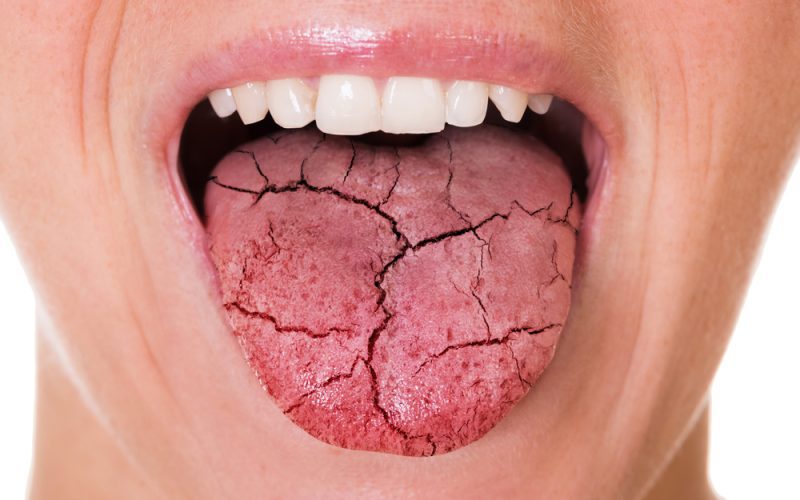Introduction:
Tongue cancer, a formidable adversary, manifests in two primary forms – oral and oropharyngeal. Understanding the distinctions between these types, recognizing symptoms, and adopting preventive measures are pivotal in mitigating the impact of this condition. This comprehensive guide delves into the intricacies of tongue cancer, shedding light on its various facets.
Types of Tongue Cancer
The first step in comprehending tongue cancer lies in distinguishing between its two primary types:
- Oral Tongue Cancer: Positioned within the mouth, it is easily visible and tends to exhibit immediate symptoms. Health care professionals, including dentists, can often detect it during routine examinations due to its accessible location.
- Oropharyngeal Tongue Cancer: In contrast, this variant originates in the throat. Its inconspicuous location makes early detection challenging. Symptoms may not manifest until the cancer has advanced, often leading to delayed diagnosis and treatment initiation.

Symptoms of Tongue Cancer:
Recognizing the symptoms of tongue cancer is crucial for timely intervention. The manifestations vary depending on the location of the cancer – oral or oropharyngeal. Here are the key symptoms associated
Symptoms of Mouth-Based (Oral) Tongue Cancer:
- Persistent Sores: The initial sign is often the presence of sores on the tongue that do not heal. These sores may be accompanied by discomfort or pain.
- Pain or Bleeding in the Mouth: Tongue cancer in the mouth can cause pain or bleeding, indicating abnormalities that warrant prompt attention.
- Lumps or Thickening on the Tongue: Formation of lumps or areas of thickening on the tongue is a notable symptom, signaling potential malignancy.

Symptoms of Throat-Based (Oropharyngeal) Tongue Cancer:
- Swollen Lymph Nodes in the Neck: An early sign may be the enlargement of lymph nodes in the neck, suggesting the presence of oropharyngeal.
- Coughing up Blood: Hemoptysis, or coughing up blood, is a concerning symptom that may indicate advanced stages of throat-based tongue cancer.
- Weight Loss: Unexplained weight loss can be a result of the cancer affecting the individual’s overall health and nutrition.
- Ear Pain: Discomfort or pain in the ear can be associated with oropharyngeal tongue cancer.
- Lump in the Back of the Mouth, Throat, or Neck: The presence of a lump in these areas may be an indication of the cancer’s growth and impact.

Additional Tongue Cancer Symptoms:
- Red or White Patch on the Tongue or Lining of the Mouth: Unusual discoloration can be a sign of cellular changes.
- Persistent Sore Throat: A sore throat that lingers and does not improve with time.
- Feeling of Something Caught in the Throat: Sensation of an obstruction or discomfort in the throat.
- Numbness of the Mouth or Tongue: Loss of sensation in the oral cavity can be a symptom.
- Difficulty or Pain with Chewing, Swallowing, or Jaw/Tongue Movement: Impaired functionality in these areas may indicate the presence of tongue cancer.
- Swelling of the Jaw: Unexplained swelling in the jaw region.
- Change in Voice: Alterations in vocal quality may be associated
When to See a Doctor:
Given the diverse array of symptoms, it is crucial to seek medical attention if any worrisome signs manifest. Individuals experiencing persistent sores, throat-related issues, unusual lumps, or any of the aforementioned symptoms should schedule an appointment with a healthcare professional. Early detection significantly enhances the chances of successful treatment and recovery.

Causes of Tongue Cancer:
Understanding the origins of tongue cancer involves exploring the cellular changes that precipitate its development.
Tongue cancer begins when healthy cells in the tongue undergo alterations in their DNA. The DNA, serving as the cell’s instruction manual, undergoes changes that prompt uncontrolled growth, leading to the formation of tumors. Over time, these cells can break away and spread to other areas of the body, complicating the prognosis.
In certain cases of tongue cancer that originate in the throat (oropharyngeal), the human papillomavirus (HPV) may play a role. HPV, a common virus transmitted through sexual contact, has been linked to a subset of oropharyngeal Notably, cases associated with HPV tend to respond more favorably to treatment compared to those unrelated to the virus.
Risk Factors
Several factors contribute to an increased risk of developing tongue cancer, ranging from lifestyle choices to demographic considerations.
Primary Risk Factors Include:
- Tobacco Use: All forms of tobacco, including cigarettes, cigars, pipes, chewing tobacco, and snuff, are significant risk factors
- Alcohol Consumption: Frequent and heavy drinking amplifies the risk, and the combined use of alcohol and tobacco further heightens susceptibility.
- HPV Exposure: In recent years, the prevalence associated with specific types of HPV has increased.
Additional Risk Factors:
- Gender: Men are more likely to develop tongue cancer than women, often attributed to higher rates of tobacco and alcohol use among men.
- Age: Individuals over 45 years old face an elevated risk, primarily due to prolonged exposure to tobacco and alcohol.
- Oral Hygiene: Poor dental care, particularly when compounded by alcohol and tobacco use, contributes to an increased risk
- Immune System Weakness: Immunosuppression, whether induced by medication post-organ transplant or caused by conditions like HIV infection, can elevate the risk.
Prevention
While certain risk factors may be beyond one’s control, adopting preventive measures can significantly reduce the likelihood of developing tongue cancer.
Key Preventive Strategies Include:
- Avoid Tobacco Use: Refraining from using tobacco in any form is the single most effective preventive measure against cancer.
- Limit Alcohol Intake: Moderating alcohol consumption, staying within recommended limits, can help lower the risk.
- Consider the HPV Vaccine: For individuals eligible for vaccination, particularly those at risk of HPV exposure, receiving the HPV vaccine may offer additional protection against cancer.
- Regular Health and Dental Exams: Periodic checkups with healthcare professionals, dentists, or members of the health care team can facilitate the early detection of signs of cancer and precancerous changes.
Treatment Approaches
The journey from diagnosis to recovery involves a tailored treatment plan that considers the type of cancer cells, location, and size of the tumor. Treatment for other health problems
Common Treatment Modalities for Tongue Cancer Include:
- Surgery: Removal of the cancerous tissue is a common approach, particularly in the early stages.
- Radiation Therapy: Targeted radiation is employed to eliminate cancer cells and shrink tumors.
- Chemotherapy: Drugs are administered to destroy cancer cells or impede their growth.
- Targeted Therapy: This approach targets specific molecules involved in cancer growth, minimizing damage to healthy cells.
Each treatment modality is selected based on the unique characteristics of the individual’s case, ensuring a comprehensive and effective approach to combating

Conclusion
Navigating the landscape of tongue cancer requires a multifaceted understanding of its types, symptoms, causes, and preventive strategies. Armed with this knowledge, individuals can make informed decisions regarding their health, fostering early detection and successful management Regular health checkups, lifestyle modifications, and a proactive approach to well-being are key components in the ongoing battle against this challenging condition.












